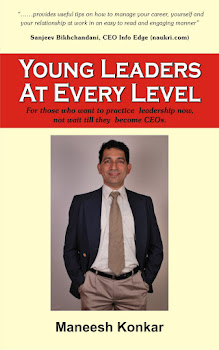At a recent not-for-attribution dinner with several (exceptionally) successful internet entrepreneurs, the conversation quickly turned to talent. How do you get the best value from your best people over time? The majority insisted that top talent's time should focus on the highest value-added problems and opportunities. Align the best people against the biggest challenges that only they can surmount. Let them create new game-changing algorithms; let them transform user experience. Above all, your top talent should amplify, extend and consolidate what makes your business model work.
But that's where the contrarian minority view kicked in — and I agree with it. Of course your best people should focus on your biggest issues. But one of your biggest issues is also — and will always be — the boring and horrendously inefficient scut work that all organizations accrue. NextJump's Charlie Kim(yes, I got his permission to attribute), the founder of one of the internet's most successful loyalty and rewards programs, argued that as organizations scale, they often slip, slide and default into less than mediocre processes that get the job done. Unfortunately, the job gets done in manual, jury-rigged or improvised ways that are deadly dull to manage and excruciatingly boring to fix.
What talent-loving entrepreneurial CEO would assign his best people to such awful tasks? Charlie would. He hires world-class talent but his business rationale is impeccable. Sustainable innovation — and the resilient processes supporting it — require creative ways of getting rid of the computational crap and digital detritus that inevitably occur when organizations try to keep going and growing fast. They get a little too far ahead of their ability to reliably and cost-effectively deliver.
This seems counterintuitive. But savvy leaders understand that, as their operations scale, the real barriers to growth aren't around the ingenuity of value-added implementations; they're in the lag-behind, necessary evil support systems and three-quarter baked infrastructures desperately attempting to support them. Typically, talent-rich organizations assign their mediocre people to solve these seemingly mediocre problems. But that, says Charlie, is short-sighted.
Put your most talented people on these most boring and stultifying issues. They'll come up with approaches and solutions that annihilate the inefficiencies and enable new opportunities for value-added enhancement and growth. Charlie told a vignette about a first-rate programmer assigned to fix a bottleneck manual process that required time-intensive and error-prone manual entries into Excel. Her software not only automated the process, it invited greater innovation. Successfully confronting scut work can stimulate the best of both worlds: rickety, non-scalable and unreliable processes are eliminated and everyone in the organization now has more time and energy to add more value.
That's a big win. It's also great for morale. Of course, many firms have cultures where the best programmers and people write and share tools that make life simpler, faster and easier for everyone else. That was fairly common in Microsoft's and Google's early days. But this "best people/seemingly trivial scut work" sensibility is hardly confined to digital industries. Most people know the saying, "If you want something done, give it to a busy person" because they have the impetus, incentive — and capability — to do it. Intriguingly, having your most talented people invest time and effort in solving the stultifying sends an important cultural signal. Improving efficiency and effectiveness for the entire organization — for everybody — should be a top management and top talent priority, too. Bright leaders pick the "right" boring challenges to address.
Does that require a streak of humility from the firm's most talented and able? Yes, says Charlie. But that's what he increasingly hires for. It's a cultural value NextJump celebrates.
It may sound paradoxical but if your very best people aren't directly involved in fixing your organization's most persistently boring processes, then you are failing as a leader and value-added manager. Get your best people excited about transforming the dull, boring and essential.
MICHAEL SCHRAGE
Michael Schrage, a research fellow at MIT Sloan School’s Center for Digital Business, is the author of Serious Play and the forthcoming Getting Beyond Ideas.


No comments:
Post a Comment